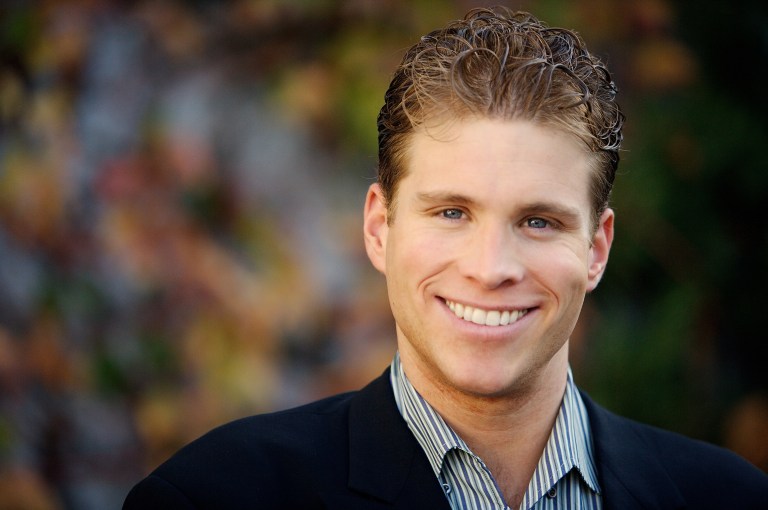
Joe Lonsdale ’04 is a co-founder of Palantir and Addepar and a general partner at early-growth technology fund Formation 8. In an interview with The Daily, Lonsdale spoke about his time at Stanford, how it has influenced his career in Silicon Valley and the role of technology in addressing broader socioeconomic issues.
The Stanford Daily (TSD): Were there any individuals or resources at Stanford that influenced or motivated you to co-found Palantir?
Joe Lonsdale (JL): There are all sorts of inspirations and resources — I think that Stanford is a great resource in [and] of itself, the professors and the students there are great. Also, I think that the former students are really critical, and there are all sorts of people coming on campus. I think that the culture at Stanford really shapes how you view the world, and you get a lot more out of an entrepreneurial mindset.
One of the most important experiences for me was editing The Stanford Review — meeting a lot of alumni [of] The Review was great, because they were all working with Peter Thiel at PayPal at that time. Being able to access that Stanford alumni network was huge — I actually interned at PayPal while I was at Stanford and learned a lot. Being in that environment and learning about it as a student was really fun.
TSD: Do you feel that the environment for starting companies and creating new products is different from what it was when you graduated?
JL: Yes, I still spend a lot of time there [at Stanford] — I think that it has become even more entrepreneurial. It has been going in that direction for a long time, and there are even more clubs around it now. I don’t necessarily think that you can learn entrepreneurship from a class or a club, but I think it is great to participate that way if you are already naturally inclined.
TSD: If you were an undergraduate today, what would you have done differently with regards to your Stanford career?
JL: I probably would have used the resources on campus to reach out to even more great entrepreneurs and business leaders. I think that when you are a student you have the unique opportunity to be able to reach out and connect with people. We don’t always have the time to reply to everyone, but if you reach out to a lot of people and show them how you share similar values and that you have something to offer, some will reply and help you out.
It’s those who have already built things themselves that you can learn the most from. It’s not really professors who create entrepreneurs — professors are great, but they’re not the ones who are going to teach you how to navigate the real world.
TSD: How do you think that the network of Stanford alumni has helped you?
JL: I haven’t used any resources directly, but the idea is that when you hear about things that alumni are doing, and when you reach out to them, the fact that you’re a Stanford student [means that] you will probably be able to engage with them. You just have to figure out a way to reach out to them in a way that’s interesting and worth their time.
A lot of us are really eager to help out students figure things out and succeed. It’s really important to build a skillset and have something to offer. I think that computer science is one of the best skillsets to offer. It’s not the only skillset, though — if you’re a great writer, for instance, that’s important too.
TSD: Do you think you could talk to us a bit about the mission of Addepar, your new company?
JL: A lot of the companies that I am inclined to get involved in have a mission to fix something that is ‘broken’ in the world. I think that one of these things is how global finance works in the world. Finance is a really important thing, because finance is the base of our global economy, and is in charge of allocating all the resources. If you can make finance more functional, make it a tiny percent better, you create a great deal of resources, which you can use for other things like education and healthcare.
A lot of the ways in which deals get done even today are through “old boy” networks and people knowing each other, and there’s [often] no alternative. Technology has come to the point where you can organize the information and then use big data to make finance more efficient and more transparent.
A lot of people don’t understand how important it is — they often think that it [finance] is something that a lot of greedy people do. It’s actually something that is critical to running our world, and making it work better helps everybody.
TSD: Where do you see yourself in five years? What challenges do you see yourself tackling?
JL: I am really proud of the work that I am doing as the chairman of Addepar, and I think that it is going to be one of the biggest companies in Silicon Valley. I am also an investor and over the next five years I want to help invest in companies that have really important missions.
There are a lot of problems in the world tied to big broken industries, which need to be fixed, and I think that the people who have the best chance of fixing them are the entrepreneurs. I think that understanding how information works, through a field like computer science, will help solve problems in education, healthcare, government, and so on. A lot of these are information-related problems, which only technologists can solve — that’s the mission I am on.
TSD: In a Jan. 20 TechCrunch Op-Ed piece, you wrote about the need for a “culture of duty” in Silicon Valley. Could you describe your thoughts on the matter and tell us how you believe Stanford could imbue its [computer science] and engineering students with that culture of duty?
JL: I guess if I was in charge of Stanford CS, one of the classes I would have as a core would involve bringing people in to talk about the big challenges we’re facing [and] a lot of the crises we are facing in the major industries right now.
There are huge problems in how wasteful and broken our government is, our healthcare is, and so on. I think that you start out being interested in computer science as a kid because it’s really fun, and you’re really cool because you’re building stuff that you want to build like games. But solving these hard problems is what’s important to me.
The really great programmers coming out of Stanford need to partner with their peers and learn how to build great teams and work together to figure out how to fix our major industries. The people running them tend to be really naive about technology cultures and what’s possible to fix, so there is a huge opportunity now. People who are good at technologies view these industries as boring, but these big industries are where the key problems are and should be more attractive.
